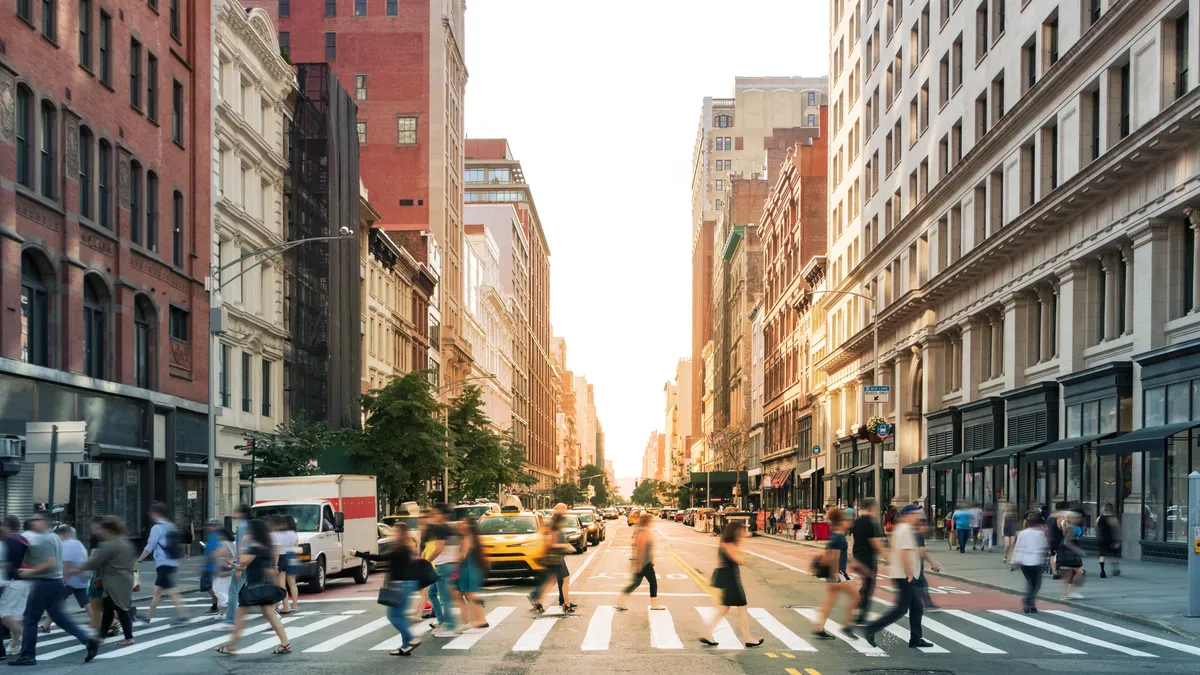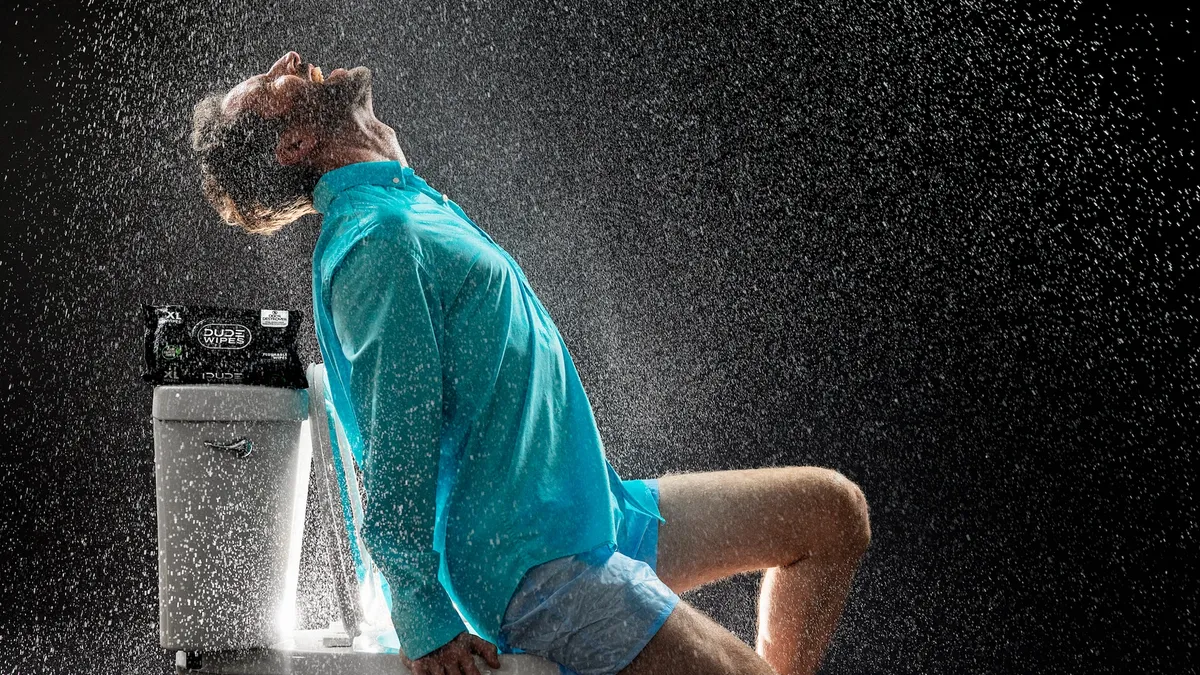Advertising Week New York kicked off earlier today (Oct. 17) with thousands of professionals from the brand, agency, publisher and tech sides of the business congregating at the Market Line in Manhattan’s Lower East Side. This marks the second year the show — among the industry’s most influential — has been held in person since the start of the pandemic and the first since it was acquired by events-holding firm Emerald Holdings in June.
The conference also arrives at an uncertain period where companies have largely gotten a handle on the complications of dealing with COVID-19 but are now contending with a shaky economy heading into the key fourth quarter and holiday season.
“Obviously, there's the backdrop of all the economic changes, or the social changes, or the political changes,” said Ruth Mortimer, Advertising Week’s global president, in a pre-show interview. “It's an incredibly fast-changing time.”
Conference-goers who flocked to Hudson Yards last fall focused more on networking than usual, eager for face-to-face interaction after months of Zoom meetings, organizers said. But the novelty of in-person hobnobbing has lessened in recent months with loosened public health restrictions, meaning attendees might turn more of their attention back to a packed slate of speaker programming that spans the metaverse, ad-supported streaming and more.
“This year, we're going to see a bit more of a balance between the two,” said Mortimer. “People are a little bit more used to hybrid working than they were a year ago, their schedules are a little bit more set.”
Topics on deck
While Mortimer, who joined Advertising Week in 2019 to grow its educational offerings, stated there wasn’t a single theme uniting such a broad conference, she noted that many people register to get a pulse on what’s new in their industry. Problems like inflation, looming cookie deprecation and a shifting privacy landscape could also ramp up pressure to stay on the ball, all while budgets are tighter.
The New York confab follows a European counterpart in May that drew its largest audience to date. About 10,000 people are expected to drop into the Market Line across the show’s four days this week — “slightly up” from last year, per Mortimer — while tens of thousands more are likely to do so virtually.
Topics will touch on emergent channels that are receiving higher investment but have yet to be proven at scale, including the metaverse and student-athlete name, image and likeness deals. Discussions about the metaverse will dig into specific tactics like the creator economy and measurement — big questions that require concrete answers for the space to receive greater brand buy-in.
Also on deck is subject matter familiar to repeat conference attendees, including the rise of video streaming and gaming. Even if those represent older chestnuts, marketers might still turn up to hear about how newer entrants, like Netflix and Disney+, are shaking up the media-buying market for the holidays.
“We've got more TV tracks this year than ever before,” said Mortimer. “What we're going to see is lots of analysis of what's working and what are those new models going to do?”
Similarly, diversity, equity and inclusion (DEI) and sustainability are recurring points on the agenda, pointing to ongoing demand for successful case studies in areas that are widely viewed as important but have seen only incremental progress at the systematic level.
“If you're not showing it, it's really hard for people to affect change,” said Mortimer of DEI.
Room to breathe
All of that is to say that Advertising Week New York could feel bigger this year, with a venue to match. The Market Line, a sprawling grocery store and food hall by day, served as a “blank canvas” for organizers, according to Mortimer, with the event stretching across multiple levels and buildings. The relatively new and spacious development contrasts with pre-pandemic shows that were held in locations like a cramped movie theater and around a smattering of smaller venues in Times Square.
“One of the challenges always in New York is to find a place that has enough space, but enough character as well,” said Mortimer. “The great thing is we've been able to build in more activation space, more working space than we've ever had before.”
Those interested in bumping elbows with their peers might take advantage of a new system that lets visitors book meeting rooms on-site rather than having to dip out to crowded coffee shops or restaurants for chats. Centralizing the activity intends to not only draw more people, but also get them to stick around and engage in more substantive ways.
“This year, more than any other, I think you can come and you can stay and you can work at Advertising Week,” said Mortimer.
There are also perks to having a new owner. Emerald runs several other events that align with Advertising Week’s focus, including in more experimental areas like Web3. The two groups on Oct. 20 are additionally co-hosting a hybrid Dieline Conference catering to the design side of the industry as part of Advertising Week New York.
“It just gives us a whole new world of people we can work with, collaborate with and explore with,” said Mortimer of the new ownership. “How can we scale even faster and achieve more than we could before?”























